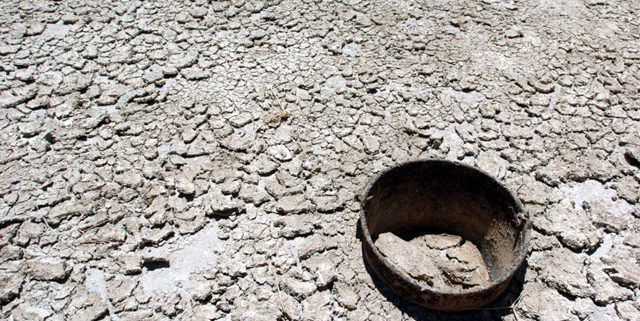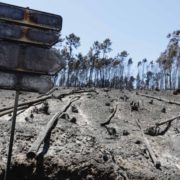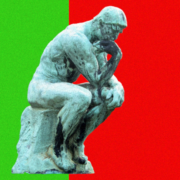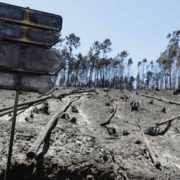Dry
Quando oiei a terra ardendo When I saw the burned land
Qua fogueira de São João Like the ‘bonfire of Saint John’
Eu perguntei a Deus do céu, uai I asked the Lord in heaven, ai
Por que tamanha judiação? Do I deserve this suffering?
Que braseiro, que fornaia What a heat, what a furnace
Nem um pê de prantação Not even a single plant survives
Por farta d’água, perdi meu gado For lack of water, I lost my cattle
moreu de sede meu alazão My best horse died of thirst
https://youtu.be/DNBCw7r0mwU [ Asa Branca, Luiz Gonzaga, 1947 ]
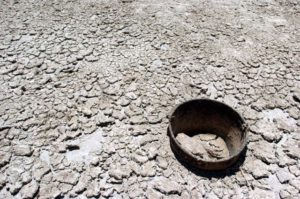 July turned out to be one of the driest months in the past 17 years. Water levels in dams and basins have dropped substantially.
July turned out to be one of the driest months in the past 17 years. Water levels in dams and basins have dropped substantially.
Last week the Meteorological Institute classified 99% of the land as dry – 80% even as very or extremely dry – especially the Southern and Eastern part of the country.
So far government’s response has been limited with the creation of an ‘Interdepartmental Committee on Drought Monitoring.’
Experts, like João Deniz from the National Confederation of Agriculture, are concerned. ‘The situation is becoming worse every day. The government is far too optimistic. They are no farmers and should be more worried.’
He remembers the severe drought in 2005, when – South of the river Tagus – more than 120 cattle died every day due to lack of rain. Cereal production fell by 60%, wine with 30% and the production of honey was almost eliminated.
‘The drought of 2005 hasn’t learned us a lesson’, says Nelson Geada, president of the Portuguese Association of Water Distribution and Drainage. ‘Things tend to get worse due to climate change. One-third of the country already faces degradation and aridity of soils, especially the interior of the Algarve and the Alentejo. It is the time that the country starts preparing itself for the future, instead of praying for rain, like people used to do.’
Quercus, an environmental NGO is also critical on government policy. ‘Drought not only compromises agriculture and livestock but lack of vegetation also leads to an increase of CO₂ and further global warming, wildfires, poverty, and emigration.
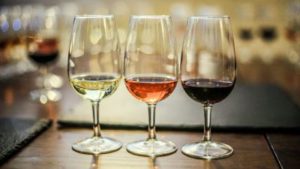 Although water is scarce, wine is not!
Although water is scarce, wine is not!
Portugal has the highest wine consumption in the world with a mean intake of 54 liters per person per year ( followed closely by France with 52 liters ).
Wine and not water has to keep Portugal going this summer. Not dry wine of course.
Bom fim de semana (photos Público/SAPO)

